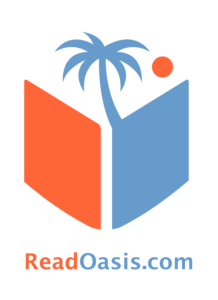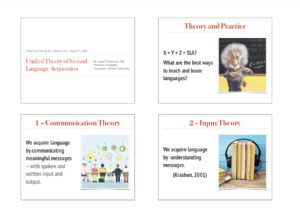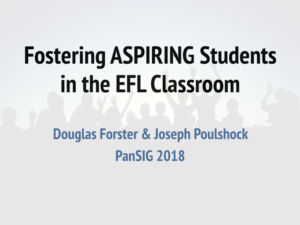 We gave a brief panel talk about ReadOasis at the The Sixth Annual Conference on Global Higher Education at Lakeland University, Japan. It’s a great conference! We enjoyed the presentations by the other panel members: Mark Feeley, from Lakeland University, gave a talk entitled “Improving Academic Literacy.” And Christopher Tempest, from Sojo University, talked about: “Implementing Quizlet in a Japanese EFL University.” We also enjoyed the atmosphere at Lakeland — very friendly and pleasant!
We gave a brief panel talk about ReadOasis at the The Sixth Annual Conference on Global Higher Education at Lakeland University, Japan. It’s a great conference! We enjoyed the presentations by the other panel members: Mark Feeley, from Lakeland University, gave a talk entitled “Improving Academic Literacy.” And Christopher Tempest, from Sojo University, talked about: “Implementing Quizlet in a Japanese EFL University.” We also enjoyed the atmosphere at Lakeland — very friendly and pleasant!
We wish to thank everyone who attended our talk. — Joseph Poulshock & Douglas Forster
 Thank you Charles Browne and your Zemi students for inviting me to your Summer Zemi this year. It was an honor and a pleasure to participate and to witness your joy and enthusiasm for life and learning!
Thank you Charles Browne and your Zemi students for inviting me to your Summer Zemi this year. It was an honor and a pleasure to participate and to witness your joy and enthusiasm for life and learning!
 By Doug Forster and Joseph Poulshock
By Doug Forster and Joseph Poulshock In April, I launched a new
In April, I launched a new  JASEC Twenty-Sixth Annual Convention
JASEC Twenty-Sixth Annual Convention